10 citations,
May 2020 in “Frontiers in cell and developmental biology” MicroRNAs are important for hair growth regulation, with Dicer being crucial and Tarbp2 less significant.
 3 citations,
September 1992 in “The Journal of Dermatologic Surgery and Oncology”
3 citations,
September 1992 in “The Journal of Dermatologic Surgery and Oncology” The conclusion is that modifying scalp lifting surgery by cutting one occipital artery and making other changes reduces complications and improves outcomes for patients with severe hair loss.
 September 2018 in “International journal of biosciences”
September 2018 in “International journal of biosciences” Gingivitis may increase a hormone linked to ovarian function in women with a certain ovary condition, and treating gum disease could help manage it.
 June 1990 in “Health Marketing Quarterly”
June 1990 in “Health Marketing Quarterly” Drug companies were interested in advertising directly to consumers to make back their money, but most didn't think it would help and were concerned about negative effects.
 12 citations,
February 2014 in “Recent Patents on Inflammation & Allergy Drug Discovery”
12 citations,
February 2014 in “Recent Patents on Inflammation & Allergy Drug Discovery” Shampoos have evolved into multifunctional products with patented innovations for different hair needs and can include medicinal herbs for hair and scalp health.
 14 citations,
July 2017 in “Monatshefte für Chemie - Chemical Monthly”
14 citations,
July 2017 in “Monatshefte für Chemie - Chemical Monthly” Analytical chemistry helps understand the makeup and use of ancient medicines, but it's complex and challenging.
32 citations,
January 2017 in “Physiology & Behavior” New hair growth corticosterone levels are higher in diabetic mice, indicating long-term stress.
August 2024 in “Bioorganic Chemistry” Cedrol from ginger can promote hair growth when taken orally.
 18 citations,
January 1997 in “British Journal of Dermatology”
18 citations,
January 1997 in “British Journal of Dermatology” 5% topical minoxidil can cause severe body hair growth, which disappears after stopping treatment.
2 citations,
September 2011 in “InTech eBooks” The document outlines steps for moving fat from one body part to another.
 August 2023 in “Dermatology and Therapy”
August 2023 in “Dermatology and Therapy” Experts recommend personalized treatment plans for best outcomes in managing Alopecia Areata.
28 citations,
September 1998 in “Journal of Investigative Dermatology” Two distinct caspases in human skin help with cell death and skin formation.
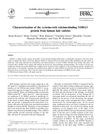 17 citations,
December 2002 in “Biochemical and biophysical research communications”
17 citations,
December 2002 in “Biochemical and biophysical research communications” Scientists found out how a specific protein in human hair cuticles behaves and is structured.
10 citations,
November 2013 in “African Journal of Traditional Complementary and Alternative Medicines” Herbal oils from Cuscuta reflexa help with hair growth, dandruff, and hair fall.
 31 citations,
October 2012 in “Dermatologic clinics”
31 citations,
October 2012 in “Dermatologic clinics” Cosmetic hair products are important for hiding hair loss and improving satisfaction when combined with medical treatments.
 May 1991 in “Current problems in dermatology”
May 1991 in “Current problems in dermatology” Skin issues can indicate immune system problems.
 96 citations,
September 2017 in “Analytica Chimica Acta”
96 citations,
September 2017 in “Analytica Chimica Acta” Hair elemental analysis could be useful for health and exposure assessment but requires more standardization and research.
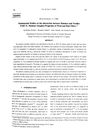 9 citations,
January 1989 in “Sen'i Gakkaishi”
9 citations,
January 1989 in “Sen'i Gakkaishi” Wool and hair fibers absorb moisture similarly due to their keratin structure, with the amount of non-crystalline areas affecting the moisture uptake.
 1 citations,
December 2019 in “International journal of innovative technology and exploring engineering”
1 citations,
December 2019 in “International journal of innovative technology and exploring engineering” Fish scale-based organic hair oil and shampoo may improve hair health and prevent damage.
 3 citations,
November 1999 in “Journal of Cutaneous Medicine and Surgery”
3 citations,
November 1999 in “Journal of Cutaneous Medicine and Surgery” AGA is a genetic, hormonal hair loss treated with finasteride, minoxidil, and supplements, but new compounds are being developed.
 51 citations,
December 2011 in “The Journal of Dermatology”
51 citations,
December 2011 in “The Journal of Dermatology” New treatments for severe hair loss often fail, but some patients see hair regrowth with specific therapies, and treatment should be tailored to the individual's situation.
 December 2024 in “Cermin Dunia Kedokteran”
December 2024 in “Cermin Dunia Kedokteran” Prompt treatment of intraocular foreign bodies is crucial to prevent blindness and improve outcomes.
 2 citations,
May 2023 in “Plants”
2 citations,
May 2023 in “Plants” Allium hookeri extract may help promote hair growth and protect cells from damage.
 32 citations,
December 2000 in “Phytomedicine”
32 citations,
December 2000 in “Phytomedicine” Apple-derived procyanidin B-2 can safely promote hair growth in men.
 57 citations,
August 2003 in “British Journal of Dermatology”
57 citations,
August 2003 in “British Journal of Dermatology” Minoxidil and pyrithione zinc combo most effectively increases hair density.
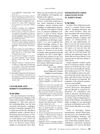 37 citations,
April 2002 in “The American Journal of Medicine”
37 citations,
April 2002 in “The American Journal of Medicine” St. John's Wort can cause dangerous high blood pressure if taken with certain foods.
 30 citations,
January 2000 in “Dermatologic Clinics”
30 citations,
January 2000 in “Dermatologic Clinics” Finasteride and minoxidil are effective FDA-approved treatments for androgenetic alopecia.
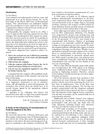 July 2000 in “Dermatologic Surgery”
July 2000 in “Dermatologic Surgery” Many skin products get contaminated with bacteria, especially if they're in jars or previously opened.
 16 citations,
January 2012 in “Asian pacific Journal of Tropical Biomedicine”
16 citations,
January 2012 in “Asian pacific Journal of Tropical Biomedicine” The herbal cream was found to be a safe and effective alternative for hair growth, similar to minoxidil.
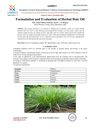 3 citations,
October 2024 in “International Journal of Advanced Research in Science Communication and Technology”
3 citations,
October 2024 in “International Journal of Advanced Research in Science Communication and Technology” Lemongrass hair oil is effective for hair growth and scalp health.























